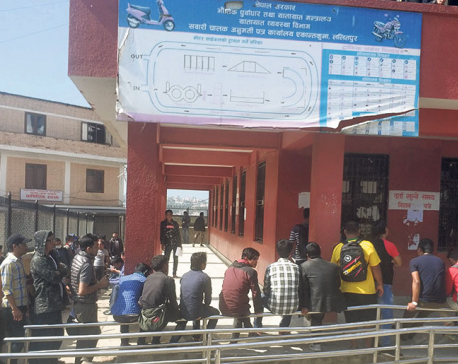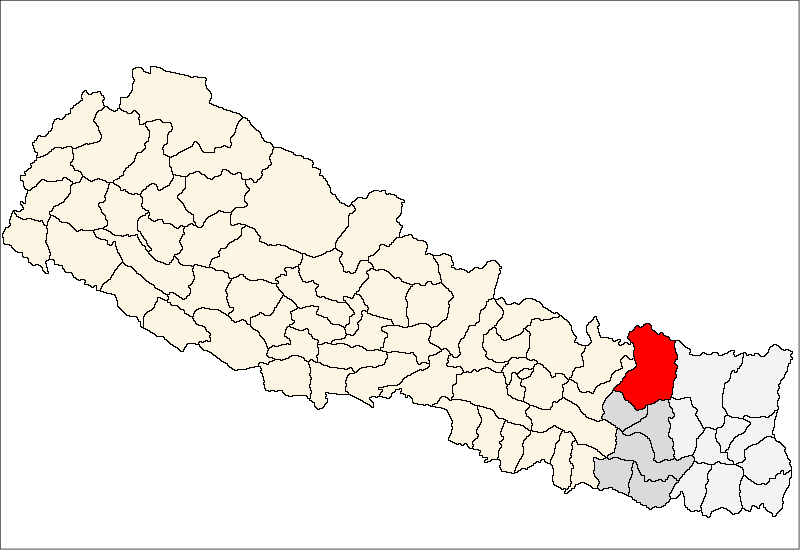
OR
#BLOG
Nepal's Quest for Comprehensive Copyright Reform in the Digital Era
Published On: January 13, 2024 09:15 AM NPT By: Udayan Regmi


Udayan Regmi
The author is an advocate and founding partner at A.H.N. Legal Law firmudayanregmi@gmail.com
The state of copyright protection in Nepal is a cause for concern
In an era of rapid globalization, the very nature of property has undergone a profound transformation. Traditionally limited to tangible assets, the modern definition and scope of property has expanded exponentially. Intellectual property, which includes inventions, literary and artistic works, scientific endeavours and symbols used in industry, commerce and communication, now occupies a central position in our interconnected world. This paradigm shift requires a robust legal shield, commonly known as copyright, that grants creators exclusive rights to protect their invaluable contributions.
Regrettably, the state of copyright protection in Nepal is a cause for concern, as it lags conspicuously behind international standards. This inadequacy is glaringly evident in the unchecked proliferation of unauthorised translations of renowned books, to the detriment of authors and readers alike. The film and music industries are also caught up in a web of copyright issues, underlining the urgent need for more comprehensive legal safeguards.
Compounding this challenge is Nepal's outdated Copyright Act of 2059 (2002), which does not reflect the dynamic changes brought about by technological advances over the past two decades. This legal vacuum not only discourages creators from contributing new works to the public domain, but also hinders progress in a world that is rapidly embracing technological innovation.
The escalating number of copyright infringement cases in Nepal is alarming and requires immediate attention and decisive action by the government. Stricter measures against unauthorised production or reproduction of copyrighted material are imperative, as is the enforcement of mandatory written agreements with rights holders for such activities.
The efficiency of the legal process is a linchpin of effective copyright protection. Drawing inspiration from successful models in China, Malaysia and Taiwan, the government should consider establishing a specialised court to deal with intellectual property issues. Such a court would not only speed up the resolution of copyright disputes, but also give creators confidence in the effectiveness of law enforcement.
Complementary to legal reforms, the integration of alternative dispute resolution mechanisms into the legal framework offers a way to reach out-of-court settlements. Simplifying the cumbersome process of filing infringement cases is essential to encourage creators to protect their works without undue obstacles. In addition, empowering the Nepal Copyright Registrar's Office to independently mediate smaller disputes or act as a mediator in larger conflicts would reduce the burden on the legal system.
Cultural change is an essential component of this multi-pronged approach. The government should actively promote the availability of genuine goods on the market and encourage a cultural shift that values authenticity over infringing products. Legislative revisions must prioritise simplifying the registration process for creative works and removing barriers that prevent creators from contributing to the public domain.
Along with legal and cultural initiatives, comprehensive awareness programmes are crucial to shaping public perceptions and fostering a collective understanding of the importance of intellectual property. These programmes not only educate the public, but also contribute to the overall economic growth by fostering a culture that respects and values creative works.
In addressing the multiple challenges of copyright protection in Nepal, it is imperative to recognise the transformative potential of technological innovation. The rapid development of digital platforms and the Internet has not only expanded the distribution of creative works, but also introduced new complexities in the protection of intellectual property. Therefore, any comprehensive legal reform must include provisions that address the nuances of digital copyright infringement and ensure that creators are protected from unauthorized reproduction, distribution and adaptation of their works in the digital environment.
An important fact that needs to be considered is the global nature of intellectual property infringement. In an interconnected world, copyright infringement often transcends national borders. Therefore, a proactive stance in aligning Nepal's copyright laws with international standards is paramount. The government should actively engage with global partners to create a framework that harmonizes intellectual property protection on a global scale. This will not only strengthen the legal foundation, but also foster an environment where creators feel supported on the international stage.
Promoting innovation also requires a proactive approach to fostering local creative industries. The government should consider introducing incentives, grants and support programmes to encourage creators and industries to invest in innovative projects. In this way, Nepal can not only protect its creative output, but also position itself as an innovation hub, attracting global attention and contributing to the economic prosperity of the nation.
Alongside legislative and economic incentives, educational initiatives play a key role in shaping a society that values intellectual property. Including intellectual property education in school curricula and organizing awareness-raising campaigns at various levels of society can foster a culture that understands and respects the rights of creators. This not only serves as a preventive measure against infringement, but also raises a generation that appreciates the economic and cultural importance of intellectual property.
In conclusion, Nepal's journey towards robust copyright protection requires a holistic approach that encompasses legal, technological, economic and educational dimensions. As the global landscape continues to evolve, it is critical for Nepal to position itself as a forward-thinking champion of intellectual property rights. By embracing innovation, fostering international collaboration and empowering local creators, Nepal can not only bridge the gap with global copyright standards, but also emerge as a leader in IP protection in the digital age.
You May Like This

How do we secure our data while living in a glass house?
The scenarios are examples of measures to protect important information. Whether that information is in the form of spoken word,... Read More...

Digital dependency
Technology is so woven into our lives that we cannot imagine life without it. The overall advancement of technology has... Read More...

Is queuing up the new nepali normal?
KATHMANDU, Sept 19: The world’s officially entered into the digital era. Accessibility at the touch of a button, on your... Read More...




Just In
- NEA Provincial Office initiates contract termination process with six companies
- Nepal's ready-made garment exports soar to over 9 billion rupees
- Vote count update: UML candidate continues to maintain lead in Bajhang
- Govt to provide up to Rs 500,000 for building houses affected by natural calamities
- China announces implementation of free visa for Nepali citizens
- NEPSE gains 14.33 points, while daily turnover inclines to Rs 2.68 billion
- Tourists suffer after flight disruption due to adverse weather in Solukhumbu district
- Vote count update: NC maintains lead in Ilam-2













Leave A Comment